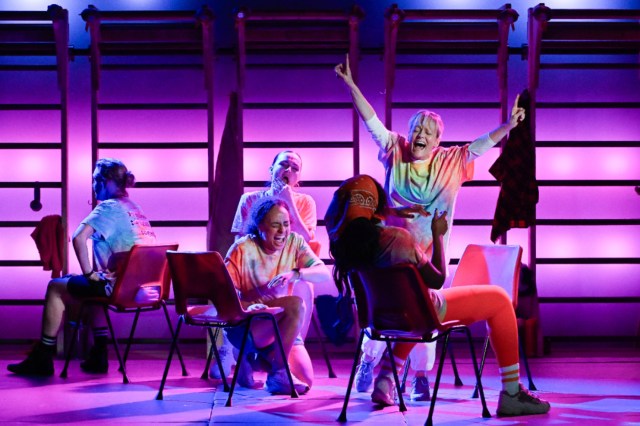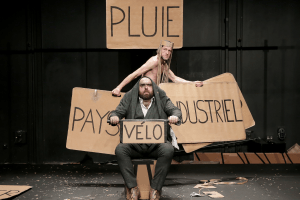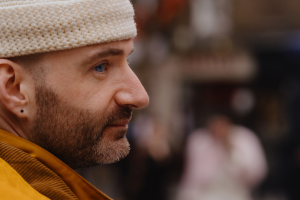Thrown at Edinburgh International Festival – review
Nat McCleary’s debut play explores traditional Scottish wrestling

The unknown world of backhold wrestling – staple of the Highland Games – provides the unlikely setting for an examination of identity, affection, and belonging in this first play from writer Nat McCleary.
Her promise is obvious. It’s there in the way she creates such lively, energetic dialogue between her five contrasting characters, women united only by their desire to show the world what they are made of as they compete against all comers on the championship circuit.
There’s Chantelle (Chloe-Ann Taylor) who sees wrestling as a way of gaining followers online and becoming an influencer in spite of her impoverished background, and her mate Jo (Adiza Shardow), gay and of mixed ethnicity, loyal to her friend but searching for something different.
Middle-aged muddler Helen (Maureen Carr) signs up because she saw a flyer at the post office and just wanted to try something new outside the walls of her marriage; rich, woke, black Londoner Imogen (Efè Agwele) hopes to assert the power of her Scottish birth. All are led by coach Pamela (Lesley Hart) whose mantra is “validation comes from within” but who is struggling with questions about her gender and her desires.
As the play develops, and allegiances shift, they fight not only to master difficult “holds” and the arcane sport, but also to assert their rights to lives of their choice while simultaneously grappling with the complications of race, nationality, and identity in a modern Scotland.
McCleary is good at humour. “She was a big 12 year old,” Pamela consoles Helen, when she loses a bout. But she also has a sharp ability to tackle issues head on. “I’ll take tokenism over exclusion every time,” remarks Imogen of the way women are allowed to compete against men. Chantelle bemoans the fact that being white and poor means she has to make her own platform; Imogen asks whether the only legitimate Black person is poor.
They are all valid questions, and there is something fascinating lurking beneath the play’s interest in the way that sport offers clear victories for one party or another while life needs more attention paid to the middle ground, to the centre of a rope in a tug of war, to the warp and weft of difference in a kilt.
But McCleary attempts to cover too much ground. The clarity of her voice and the voices she gives her characters get softened by her desire to make them mouthpieces; especially within the constrictions of an 80-minute format, they don’t have the space to grow and breathe as believable people. It is as if the writer herself becomes weighed down by her sense of responsibility.
This feels a shame because when she relaxes, the piece is effortlessly telling – and enormous fun. It’s full of warmth, beautifully encapsulated by a cast who never miss a beat and cleverly directed for the National Theatre of Scotland by Johnny McKnight with a rich appreciation of the quirks and turns of life which it depicts. Lucy Glassbrook’s movement and Karen Tennent’s gymnasium set add to the vital impact it makes.
















